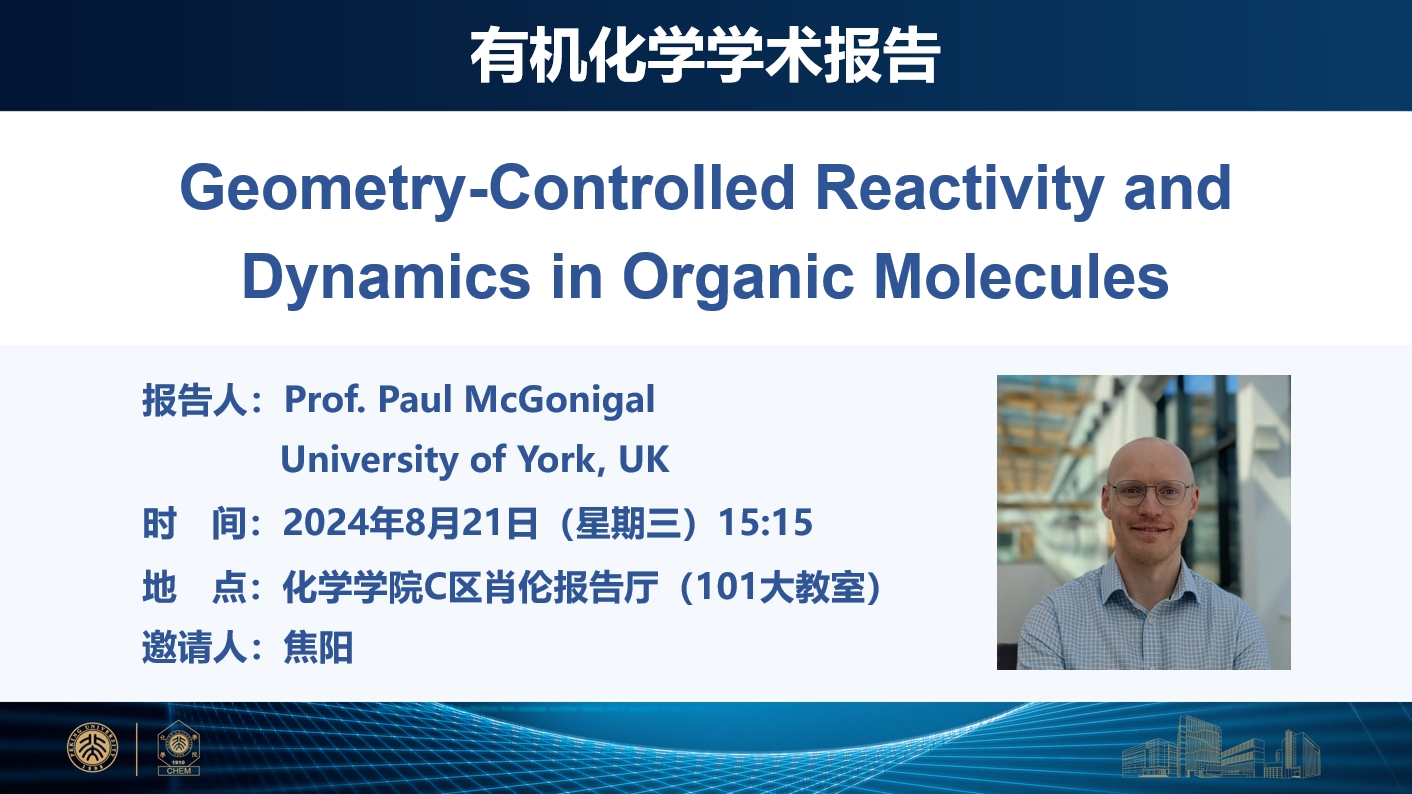
Abstract
It is well-established that strain arises in organic molecules as a result of non-ideal bond lengths, bond angles, and unfavorable non-bonded interactions. The constrained geometries of ring systems are particularly predisposed to creating strain. Our recent research balances strain relief and geometry constraint to “switch-on” dynamic processes.1 This talk will summarize our investigations2 of fluxional carbon cages, which can give rise to phenomena such as dynamic preferential crystallization and stimulus-responsive dynamic sp3-C stereochemistry (Figure 1a). It will also describe our discovery3 of an aromatic-to-nonaromatic that emerges when the aromatic stabilization energy of a ring system is offset precisely by steric strain (Figure 1b).

Figure 1. (a) Fluxional rearrangement of 9-substituted barbaralanes lead to global inversion of sp3-carbon-centred stereochemistry of the triyclic cage, which can be used to transmit stereochemical information to coordinated chiral-at-metal centres. (b) The peripheral overcrowding of an 6π-electron tropylium ring causes strain energy to exceed aromatic stabilisation energy, causing the aromatic ring to collapse reversibly to a nonaromatic ‘Dewar tropylium’.
References
1.Saha, P. K.; Tran Ngoc; T.; McGonigal, P. R.; Teichert, J. F. Nature Synth. 2024, 3, 684–697.
2.Bismillah, A. N.; Johnson, T. G.; Hussein, B. A.; Turley, A. T.; Saha, P. K.; Wong, H. C.; Aguilar, J. A.; Yufit, D. S.; McGonigal, P. R. Nature Chem. 2023, 15, 615–624.
3.Saha, P. K.; Mallick, A.; Turley, A. T.; Bismillah, A. N.; Danos, A.; Monkman, A. P.; Avestro, A.-J.; Yufit, D. S.; McGonigal, P. R. Nature Chem. 2023, 15, 516–525.
Biography
Prof Paul McGonigal conducts research into dynamic processes in organic functional materials, spanning topics as diverse as aromatic cation materials, solid-state luminescence, self-assembled soft surfaces and fluxional molecules. He is a current recipient of an EPSRC Fellowship and an ERC Consolidator grant at the University of York, where his group’s research has been recognised by the RSC Harrison–Meldola Memorial Medal (2022) and the Liebig Lectureship from the German Chemical Society (2023). He started his independent academic career at Durham University as an Assistant (2015) and Associate Professor (2021), before moving to the University of York as a Reader (2023) and then Full Professor (2024).